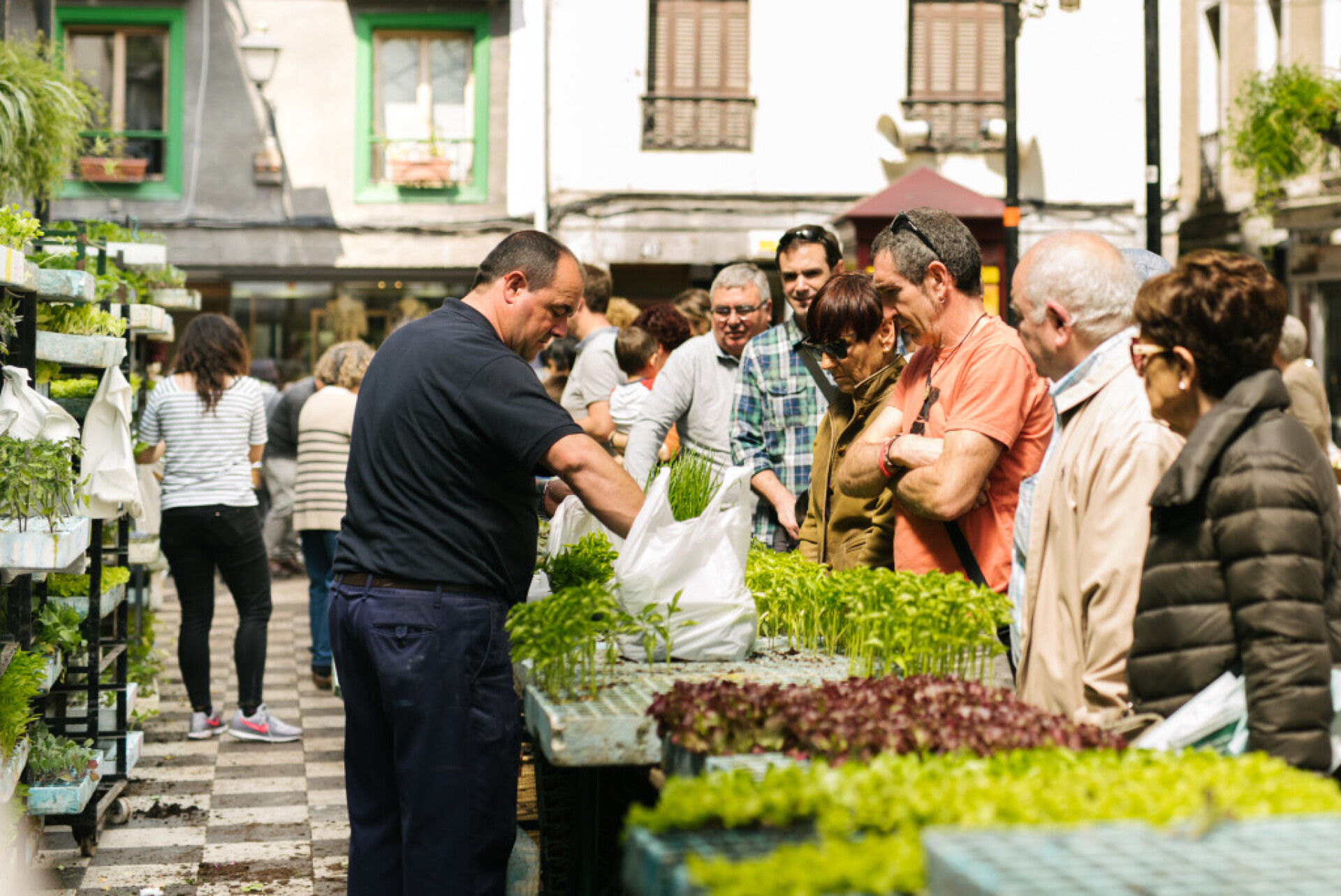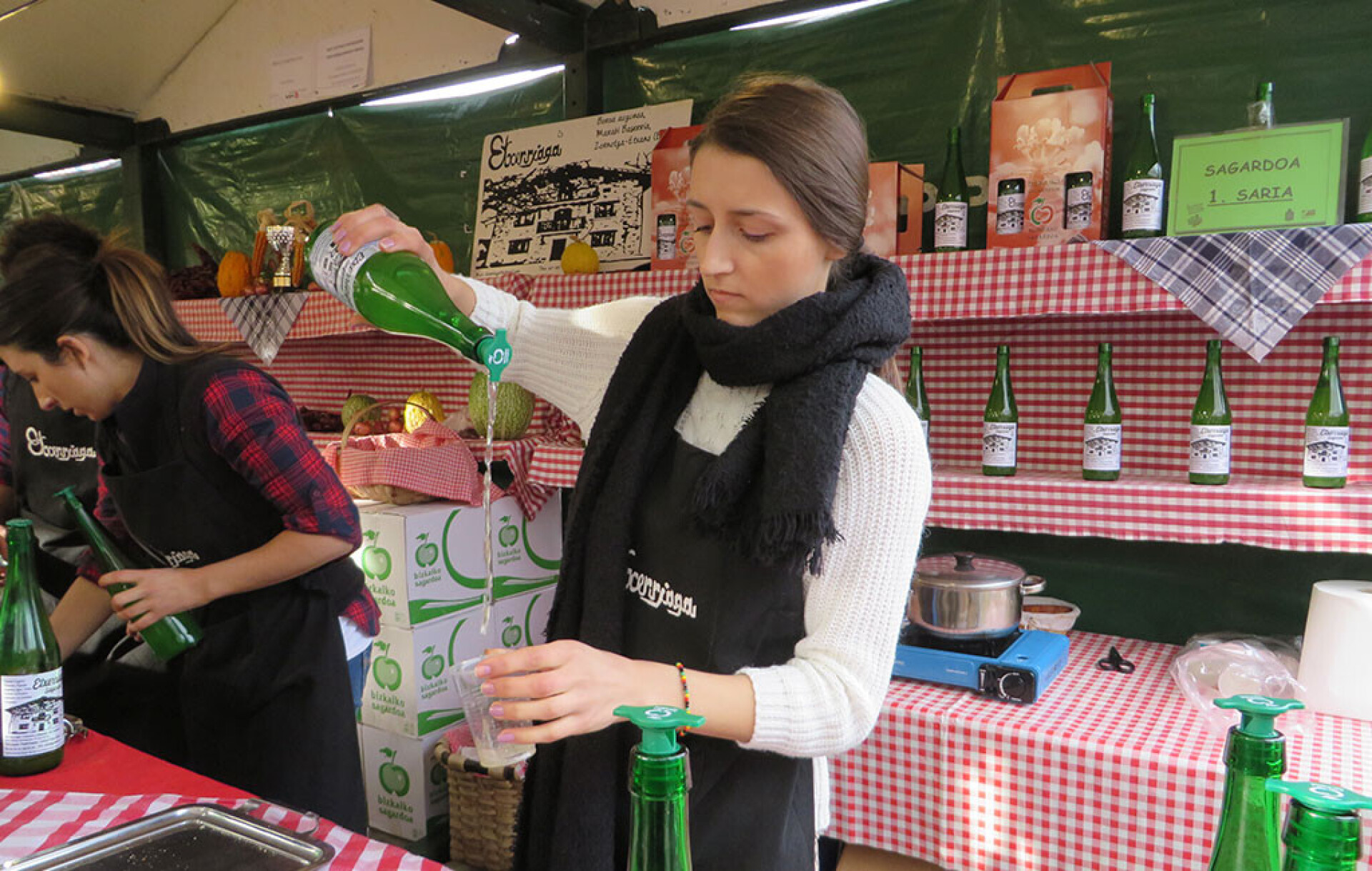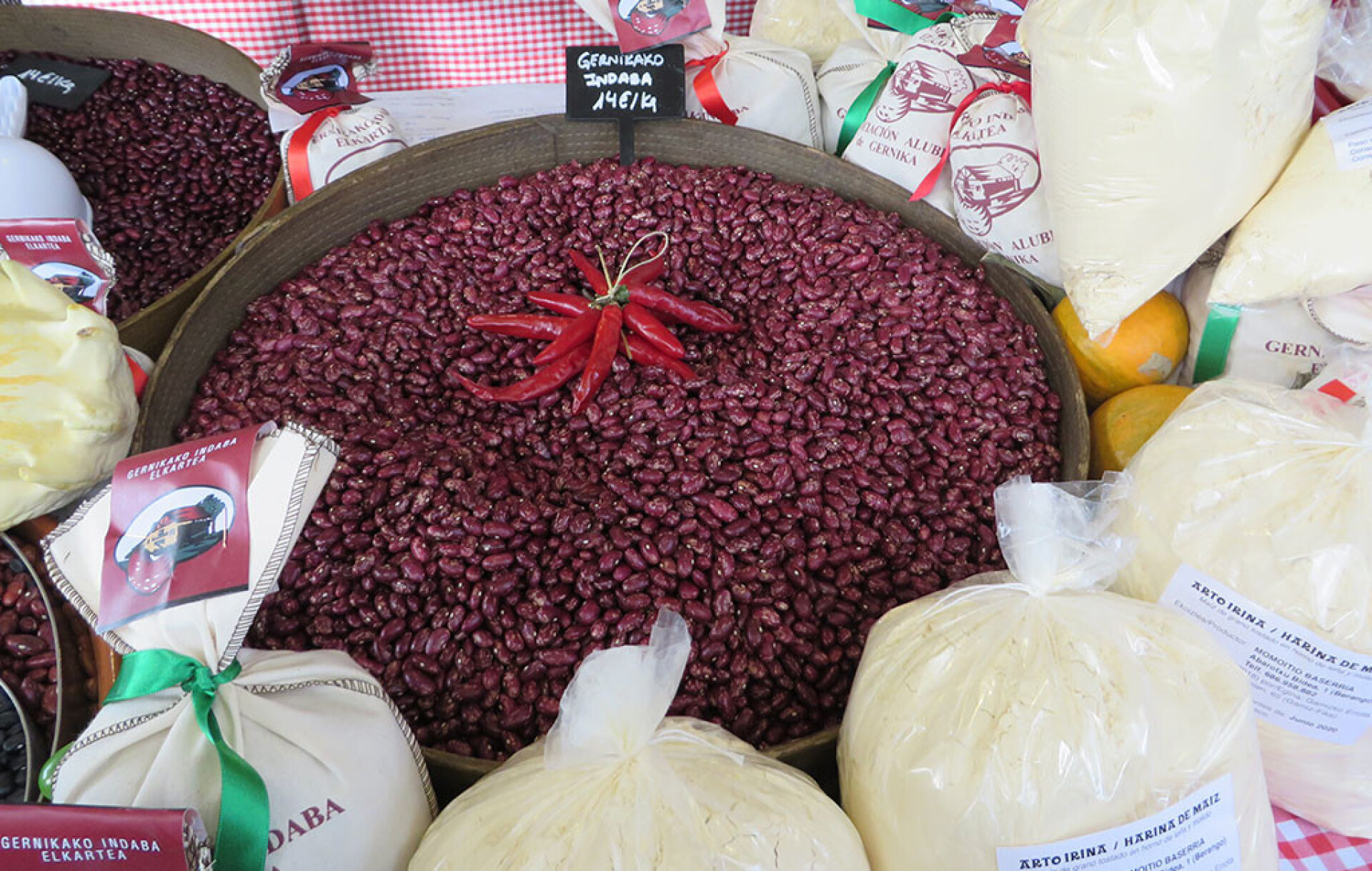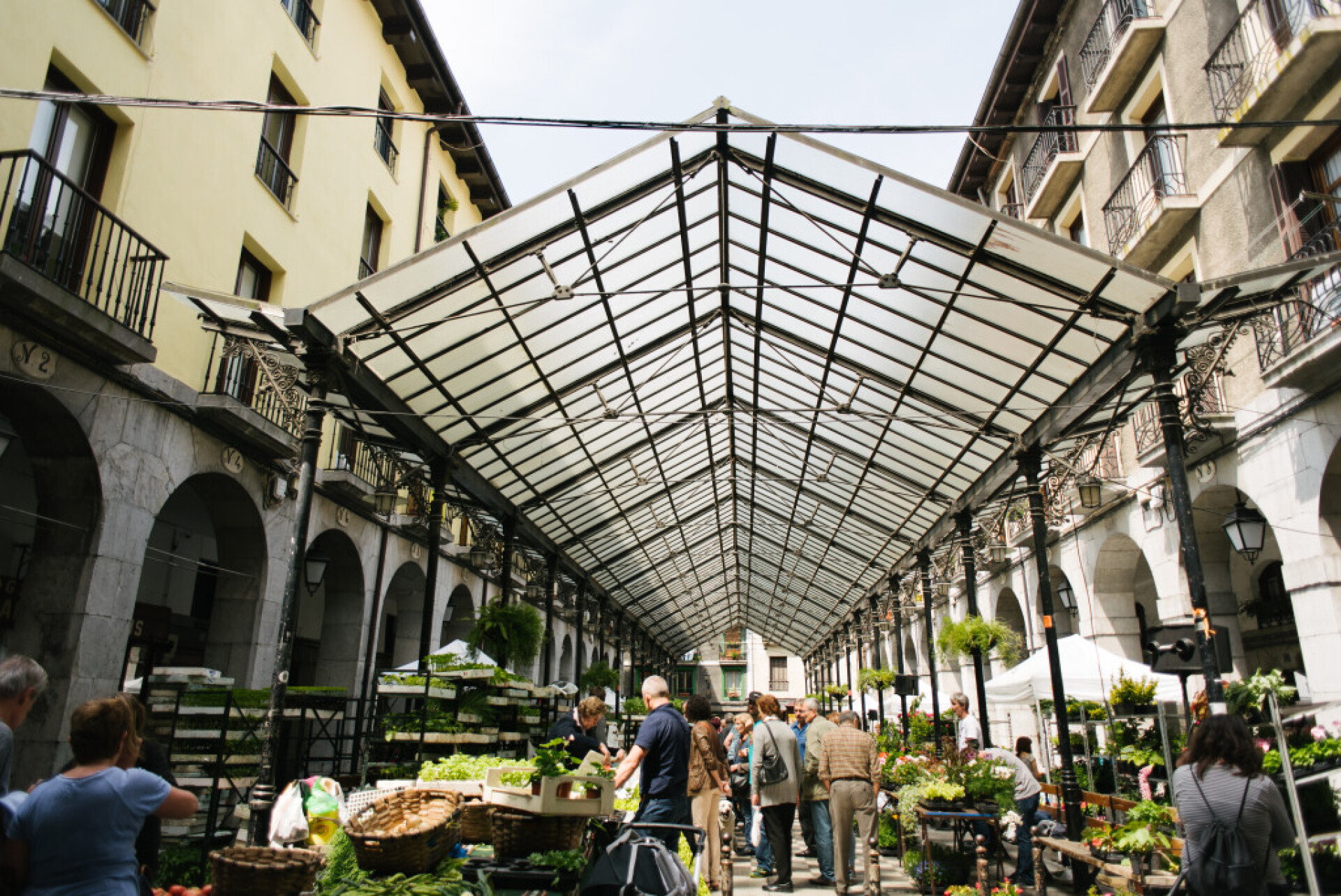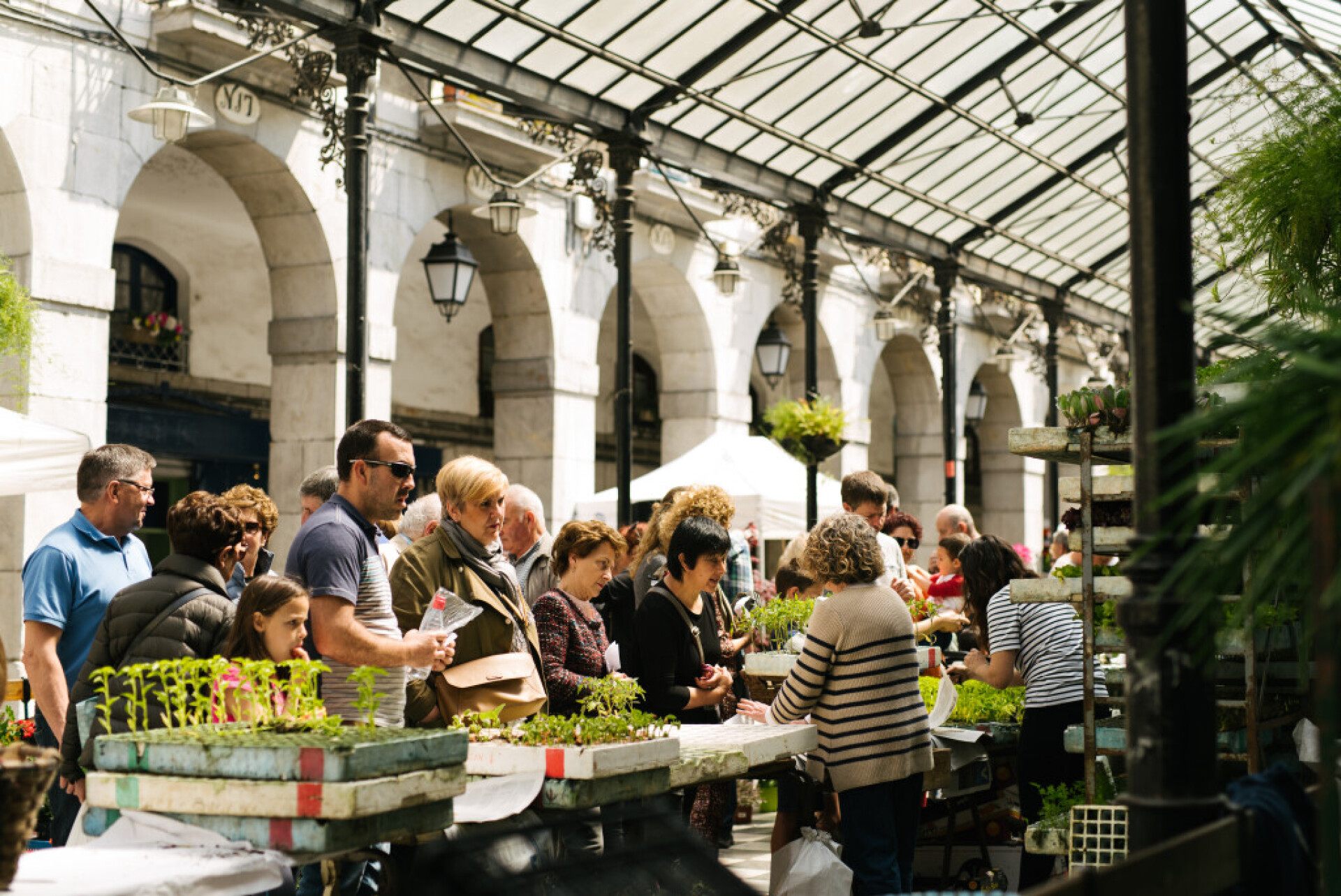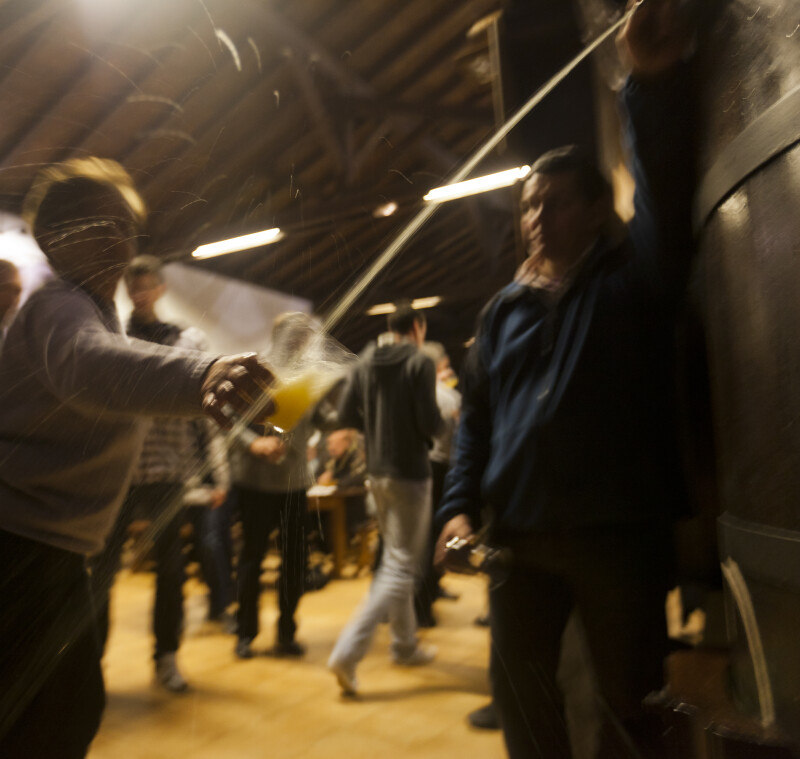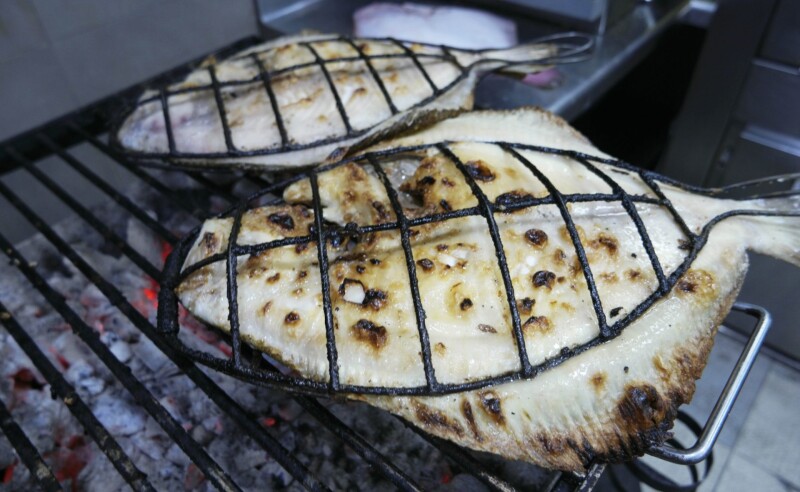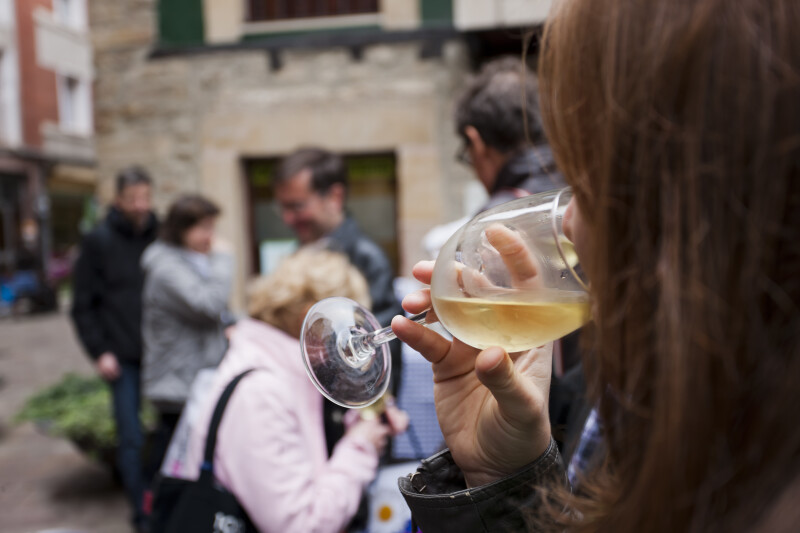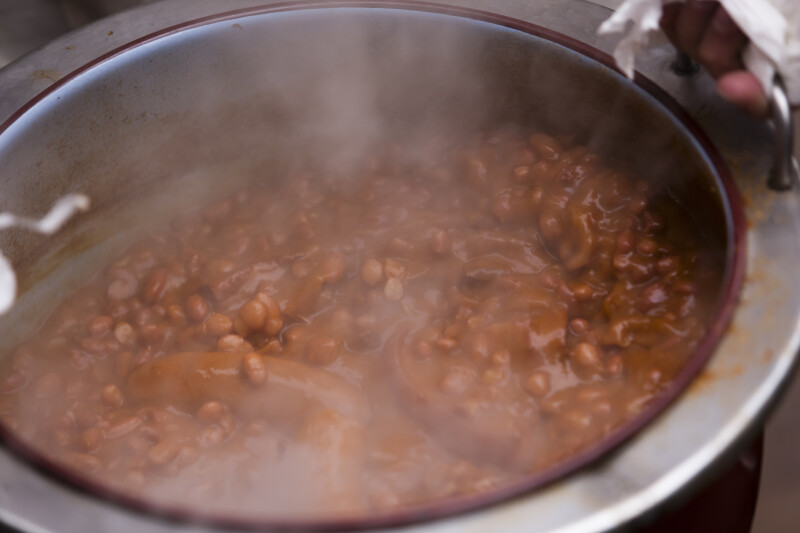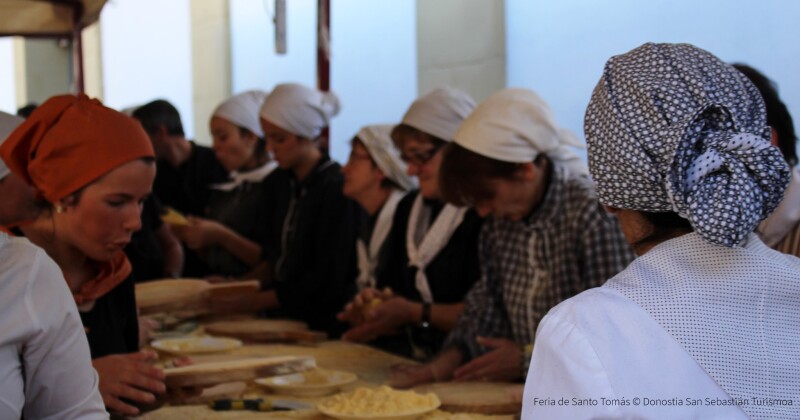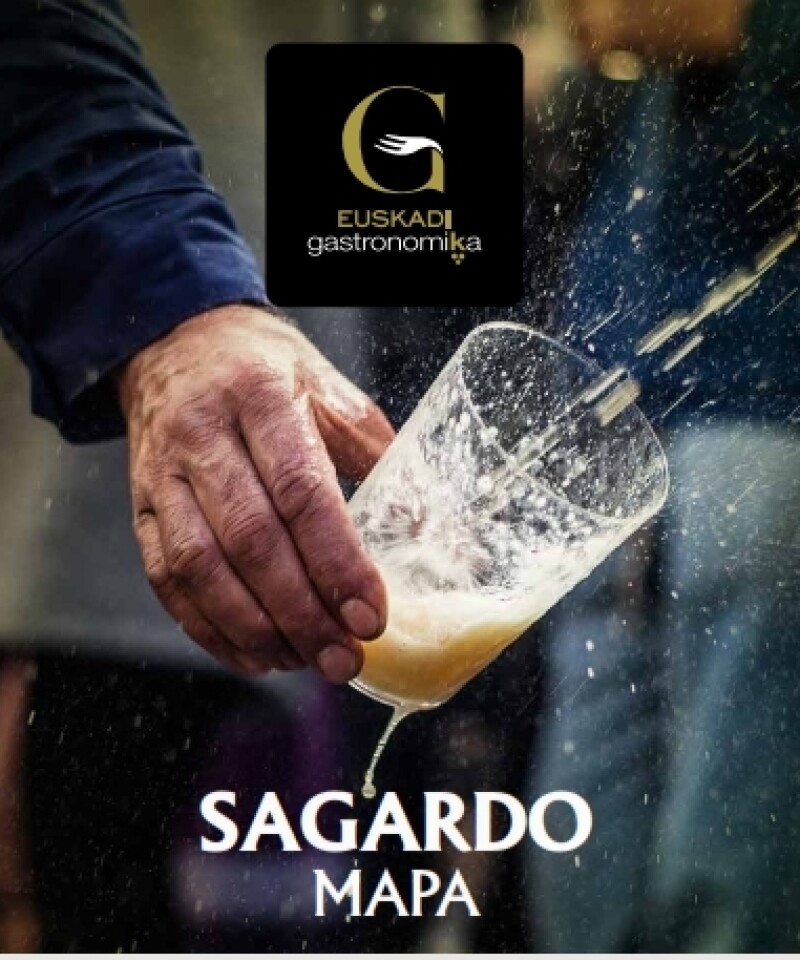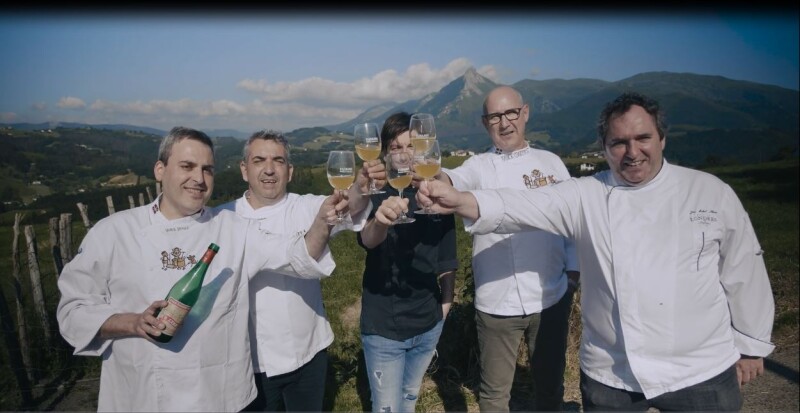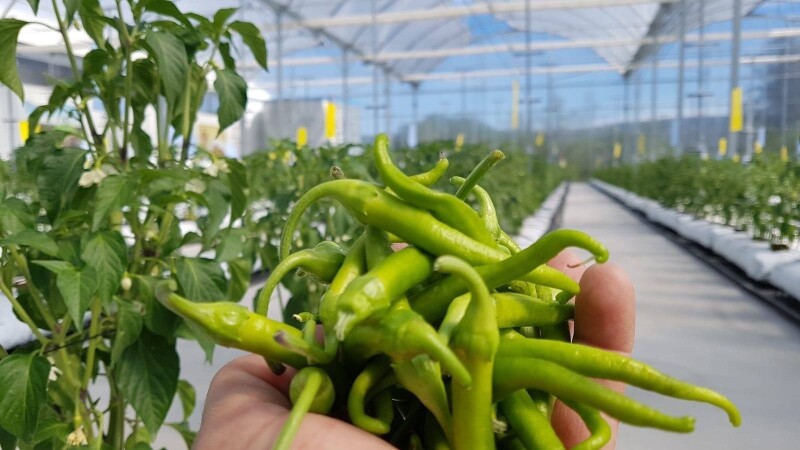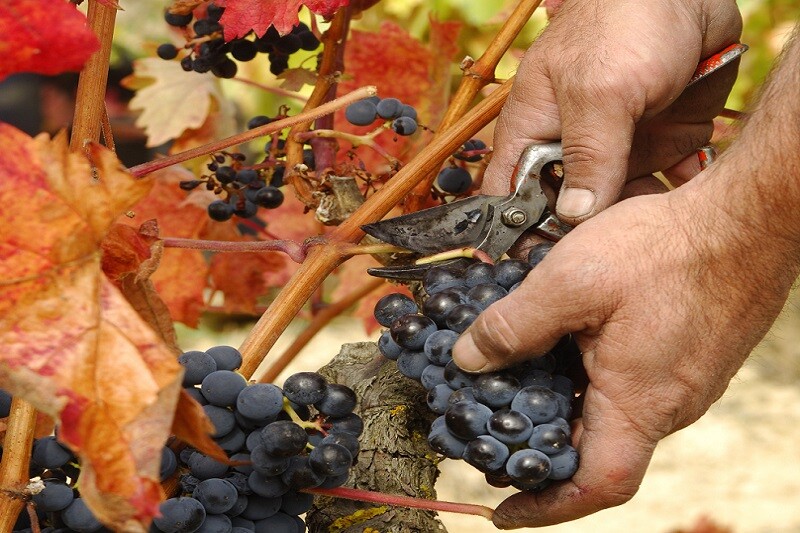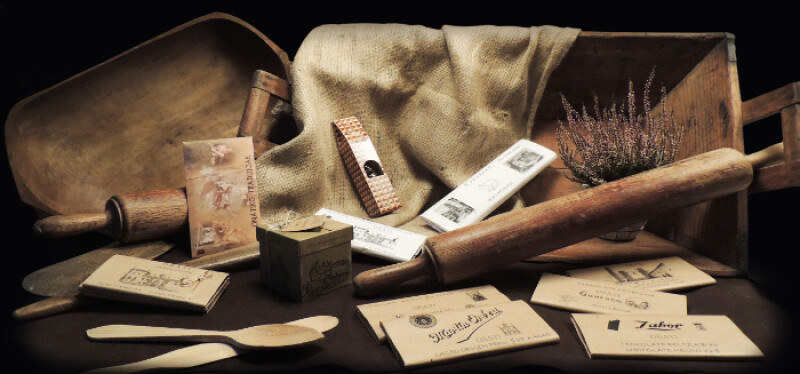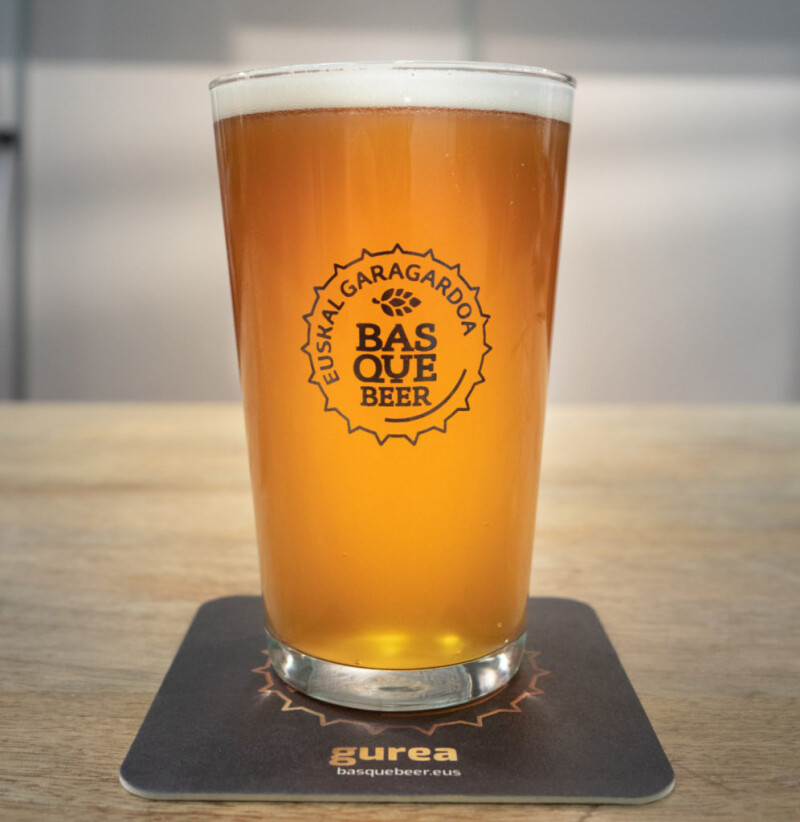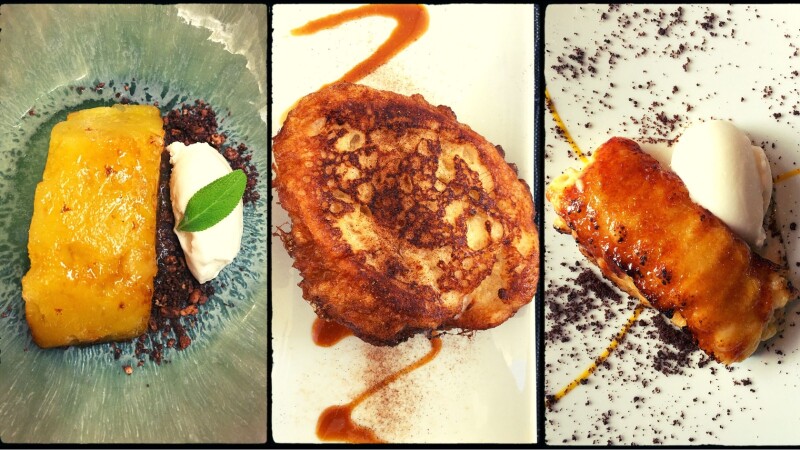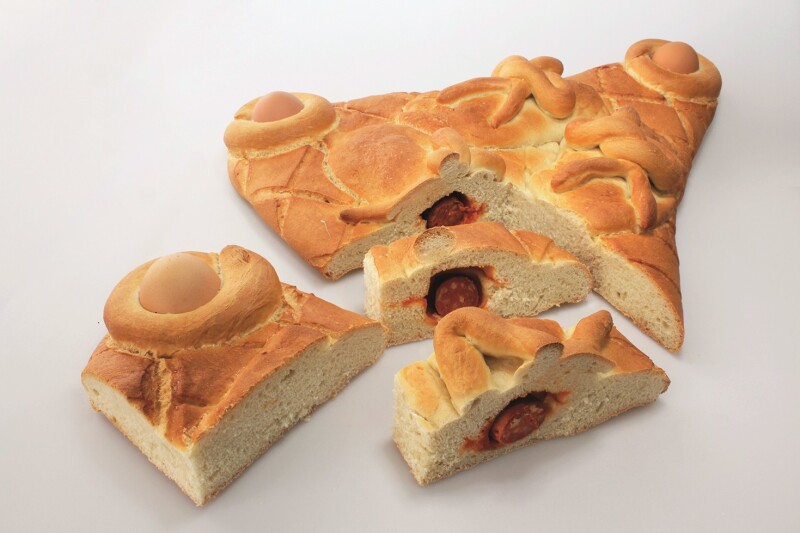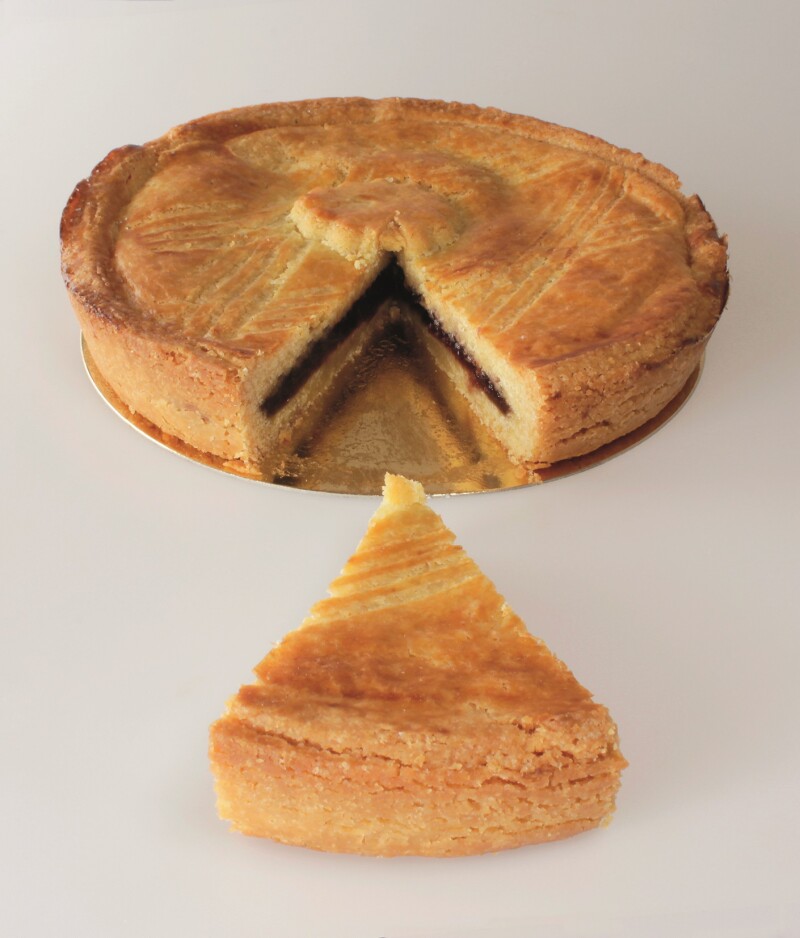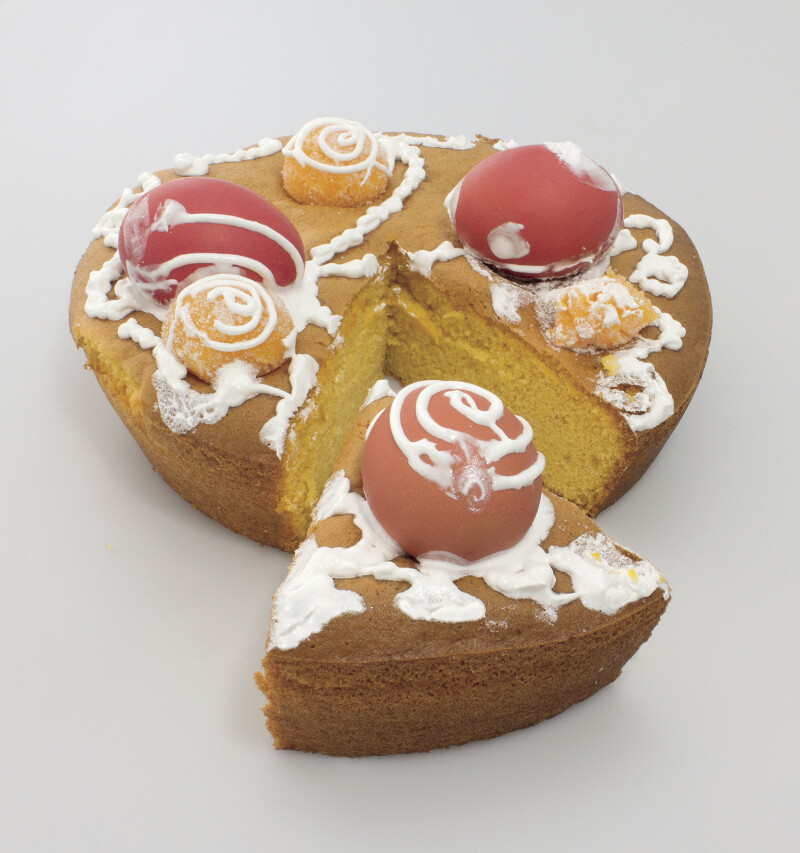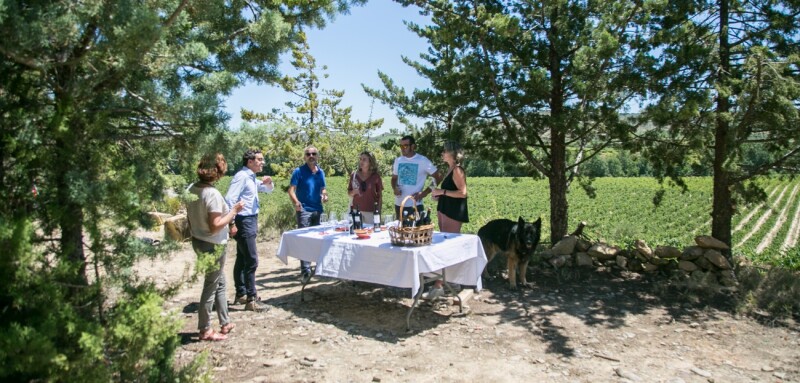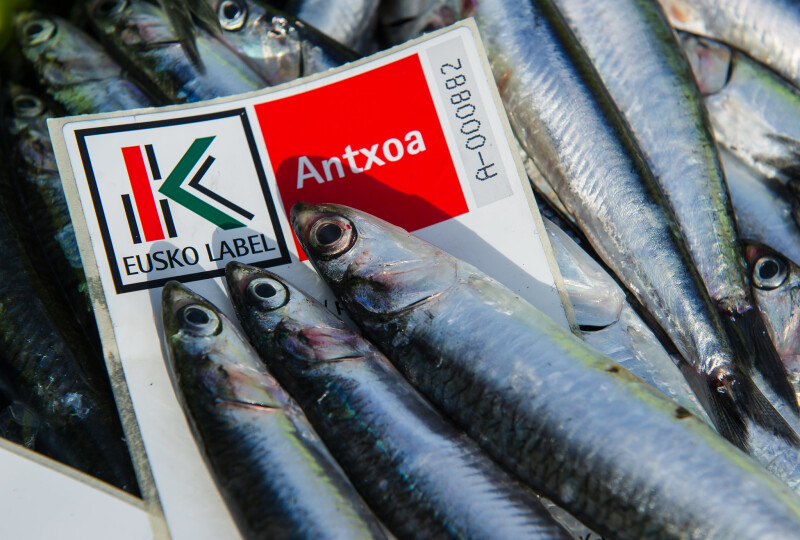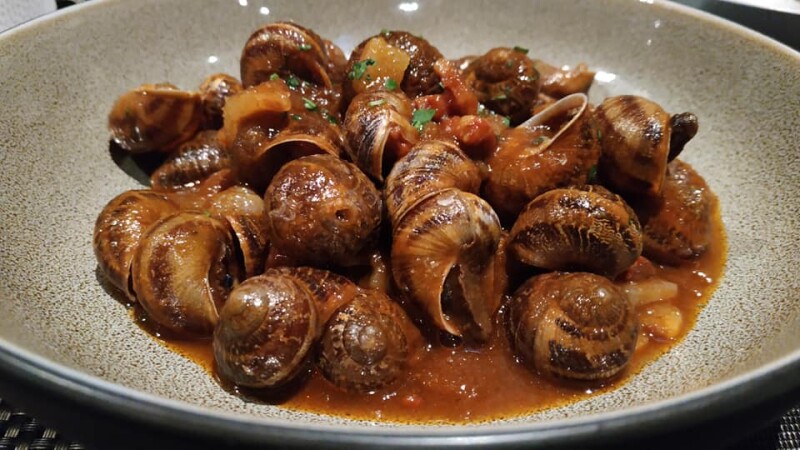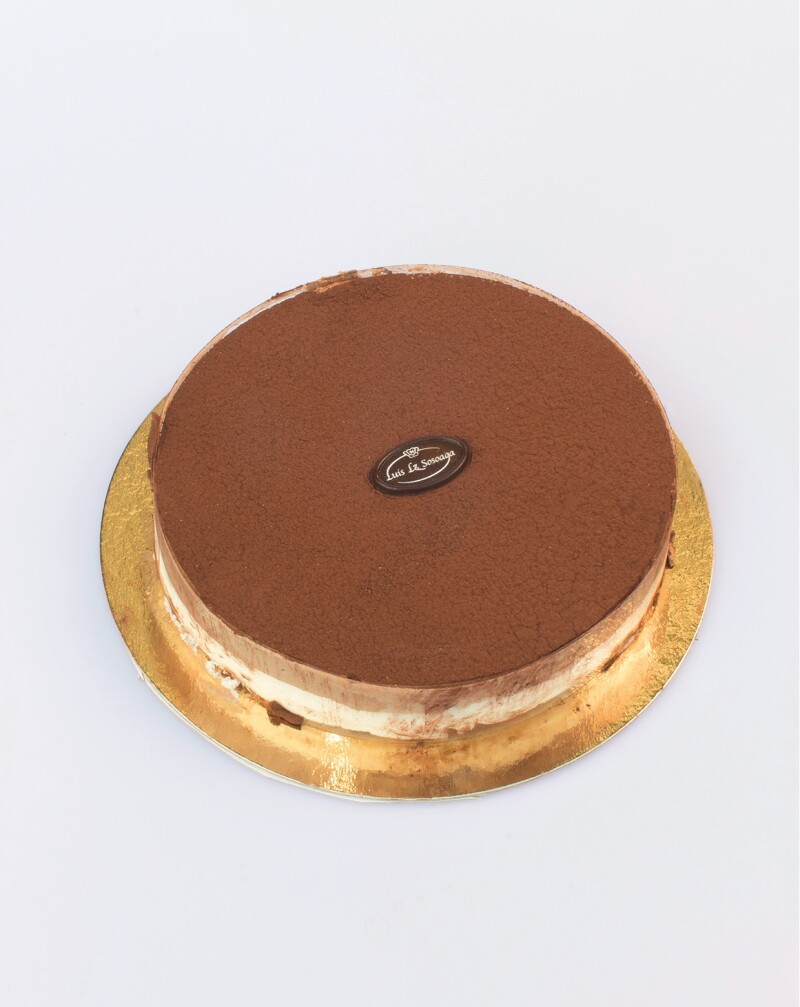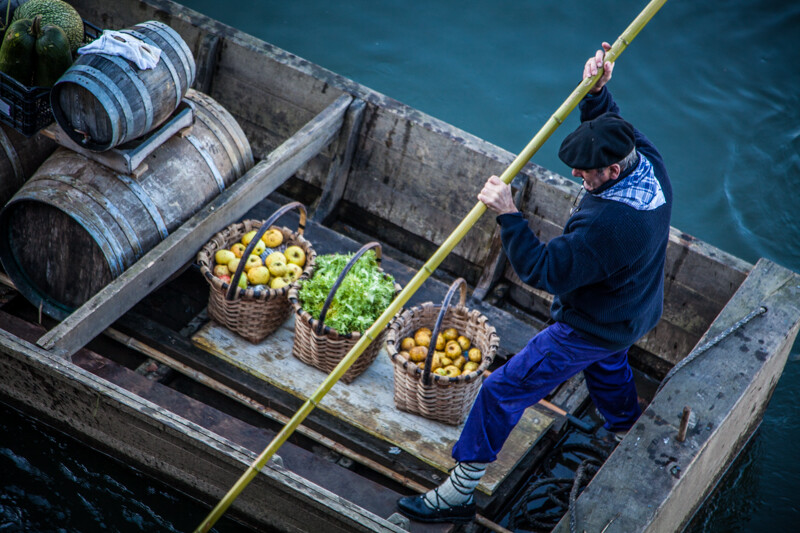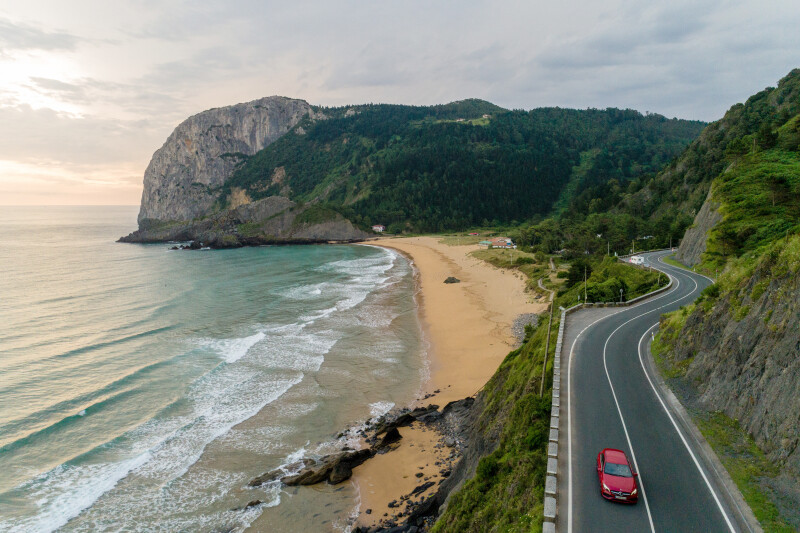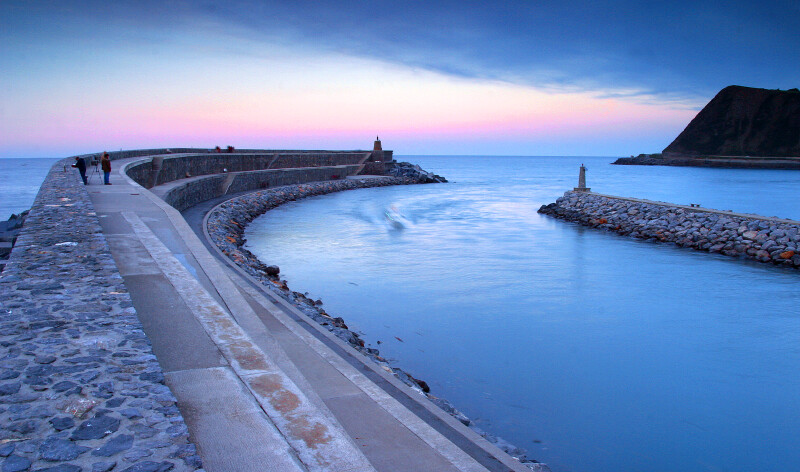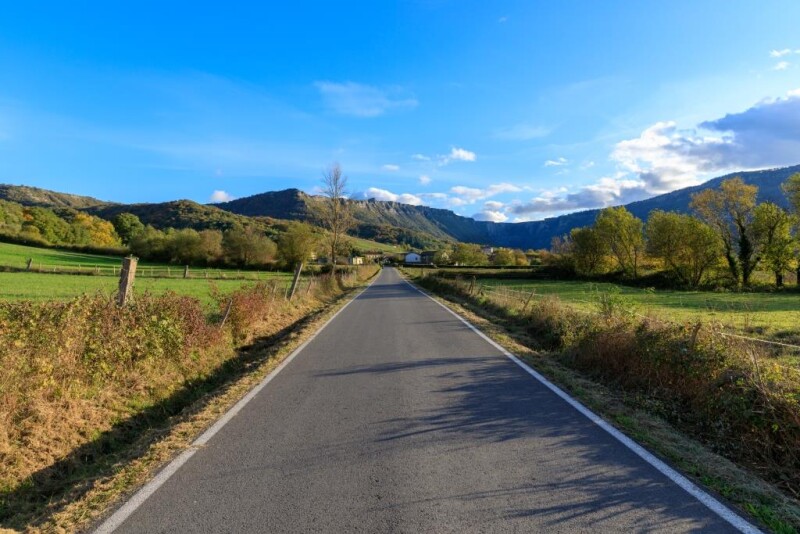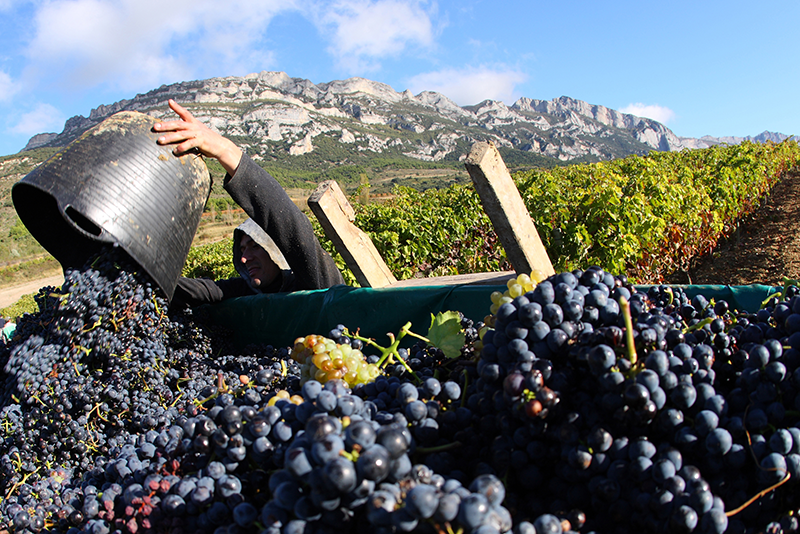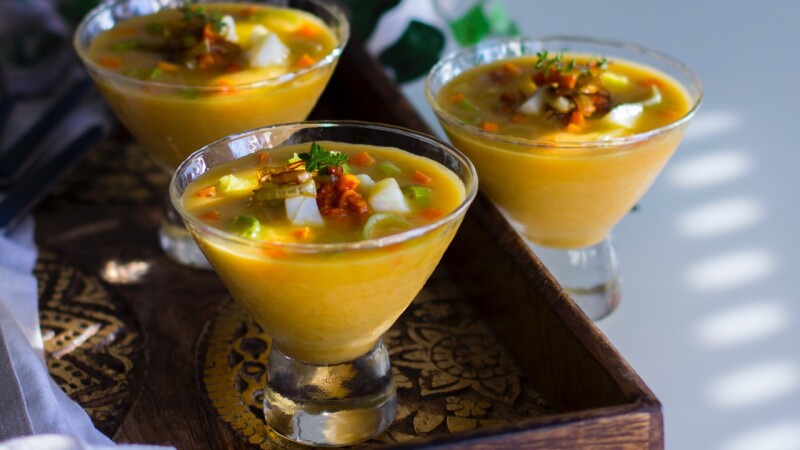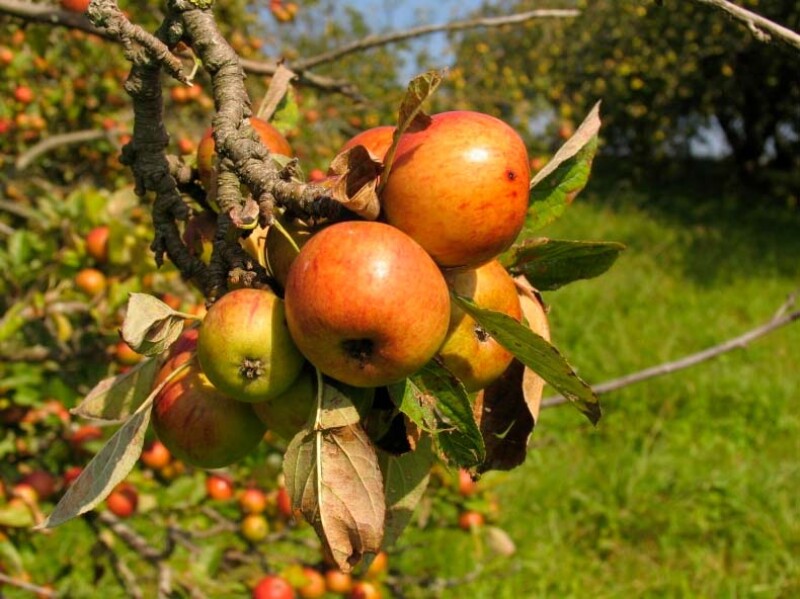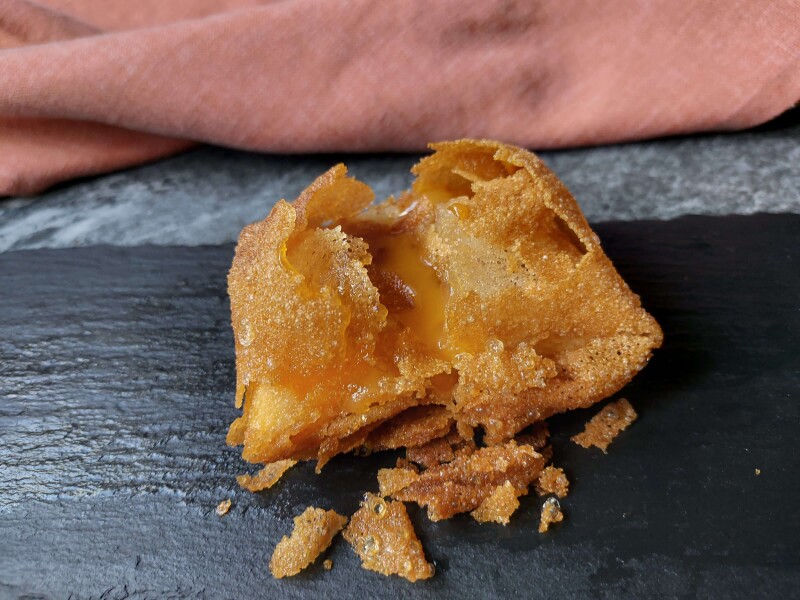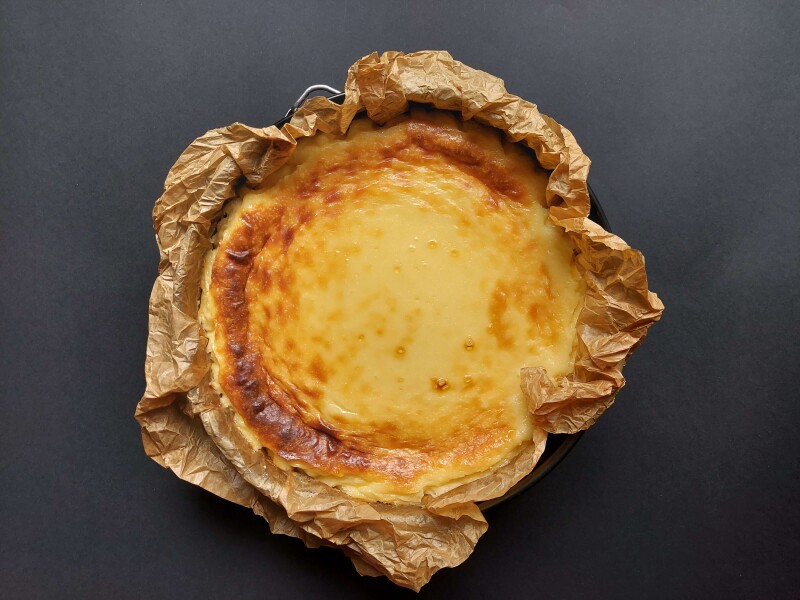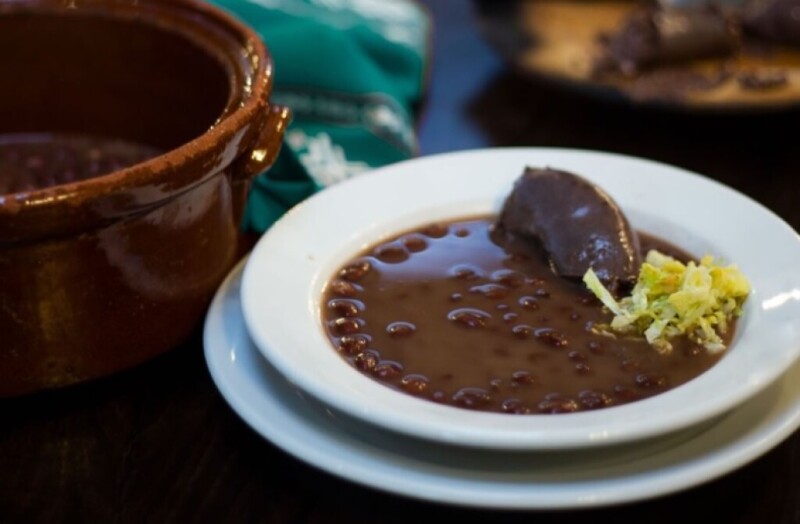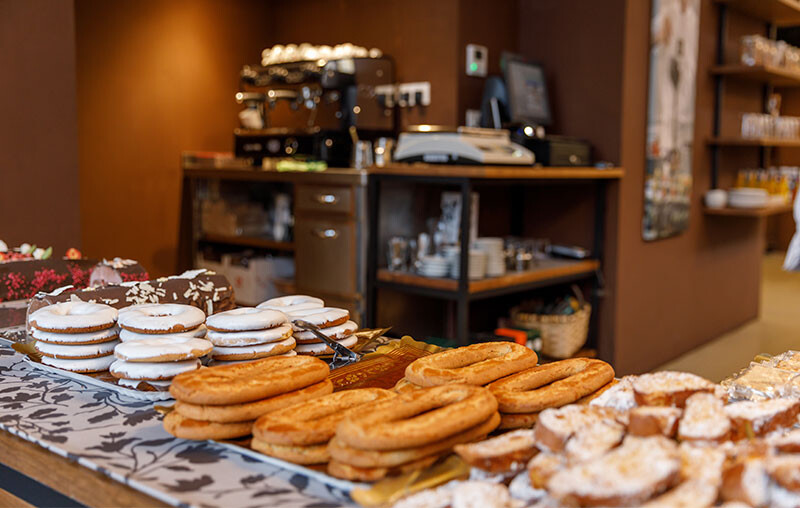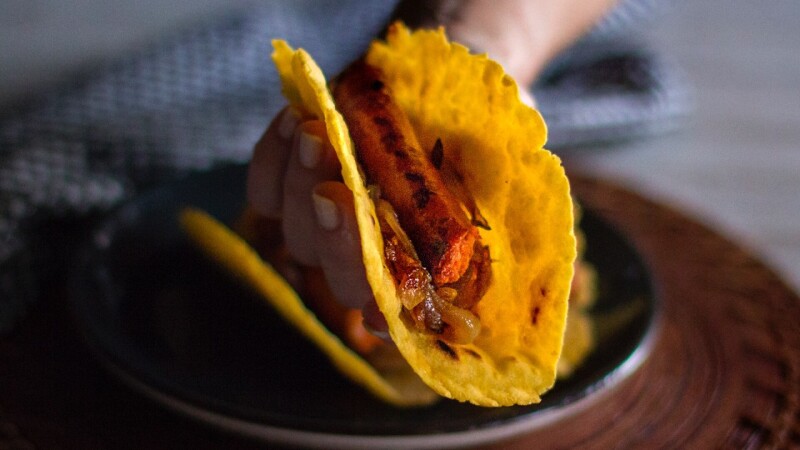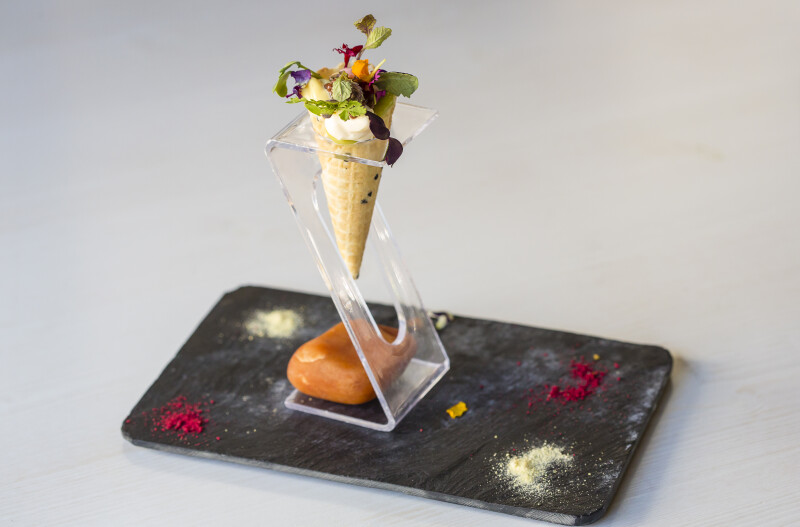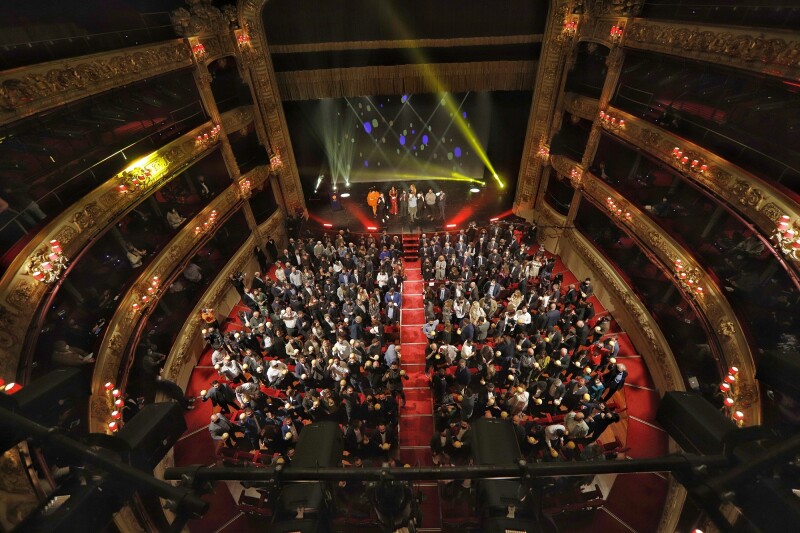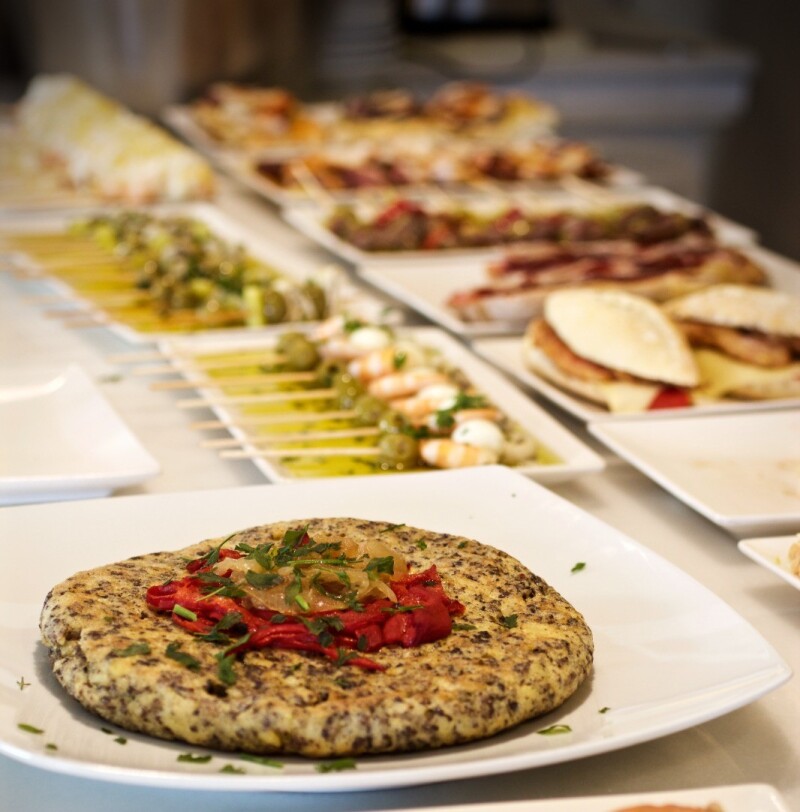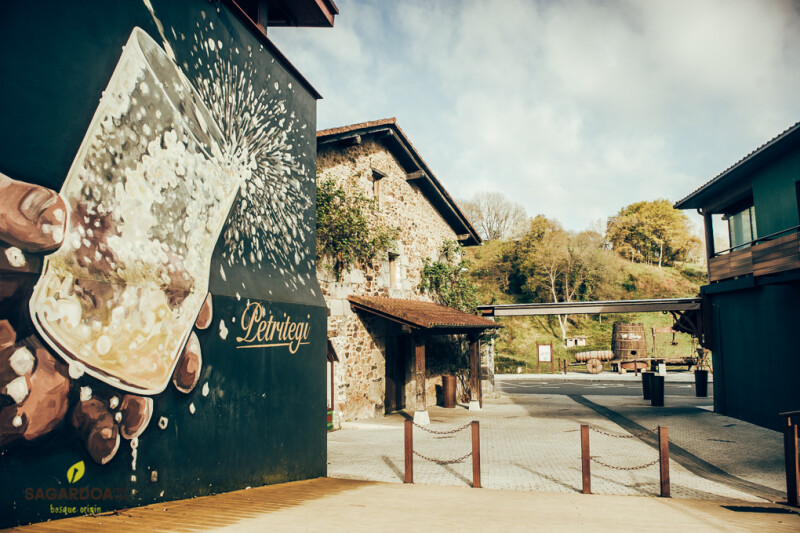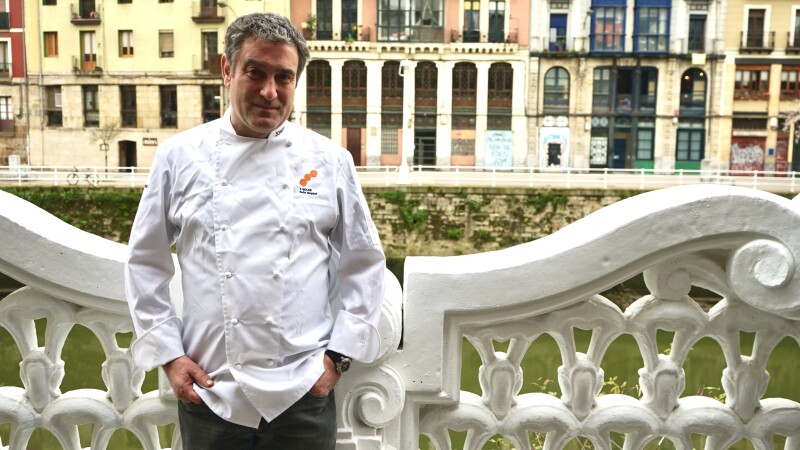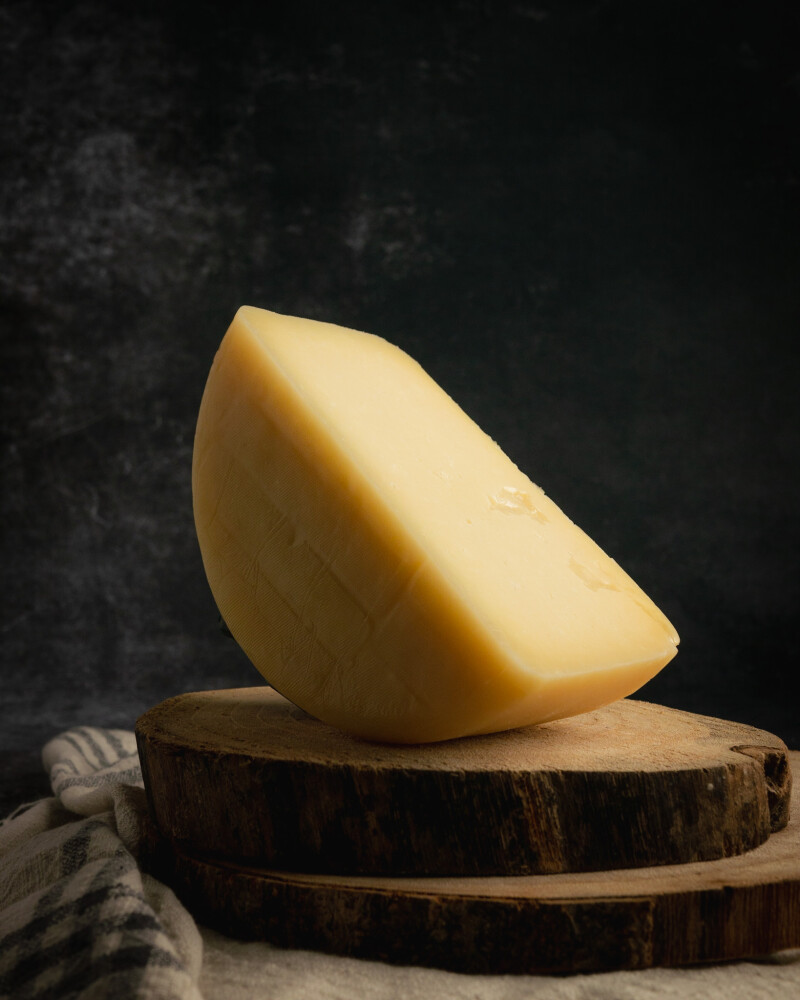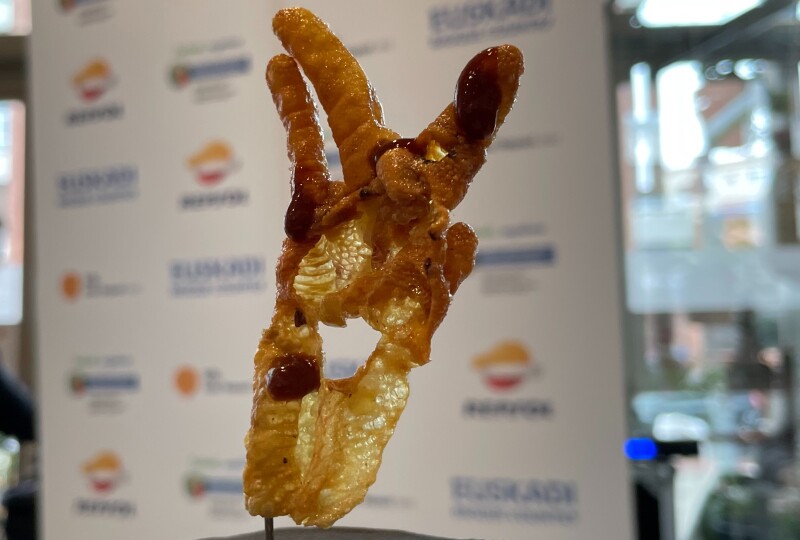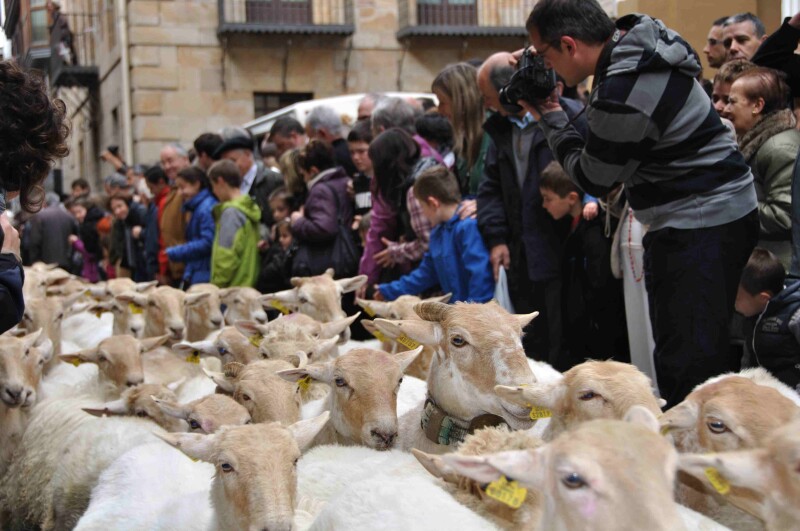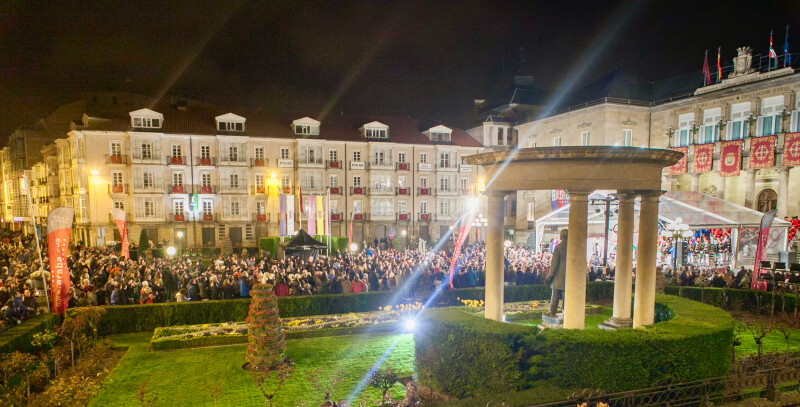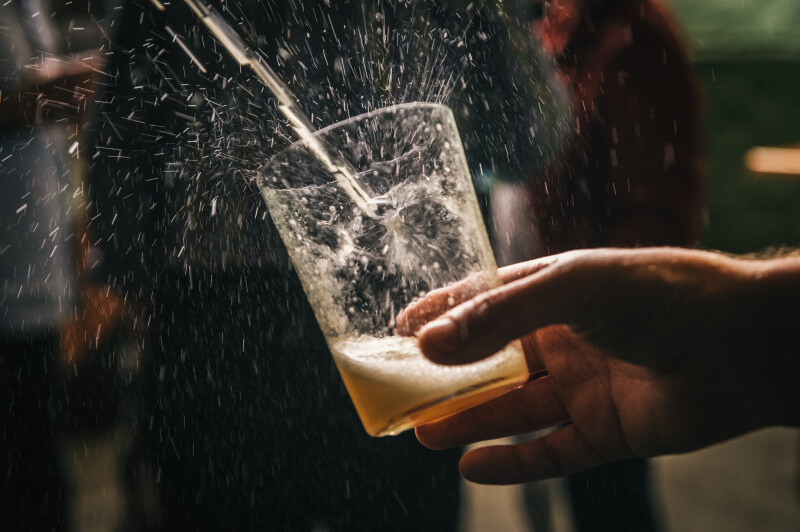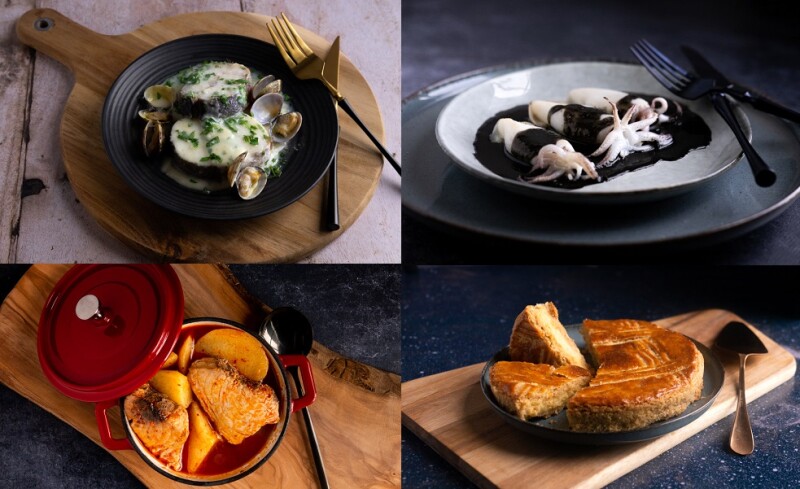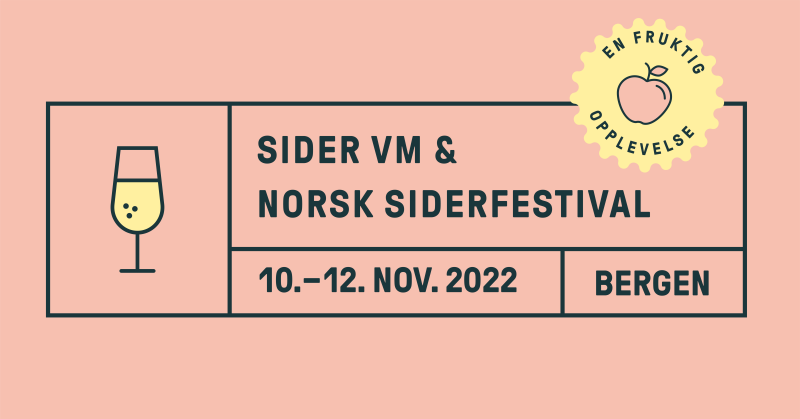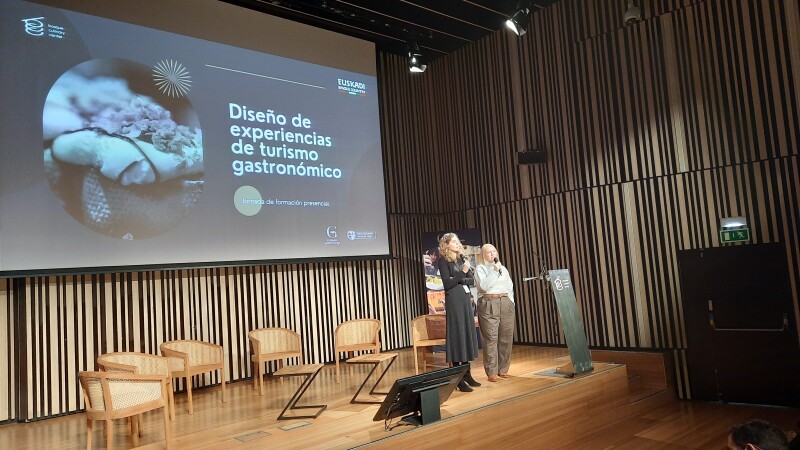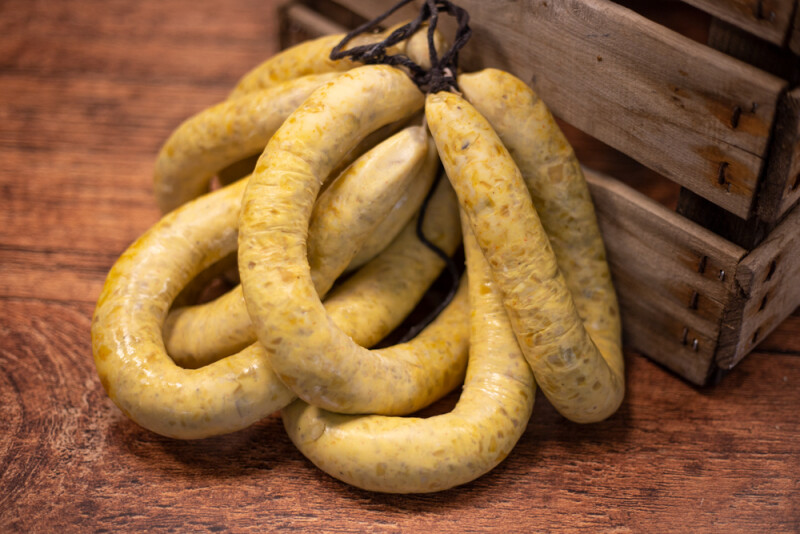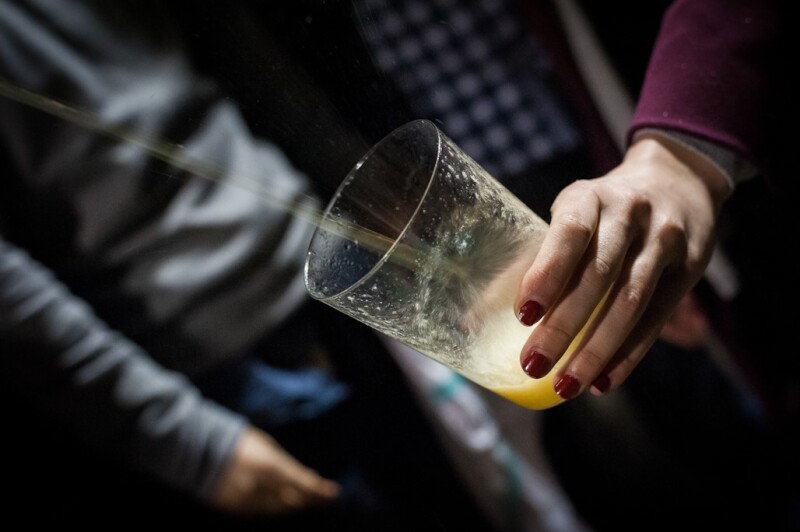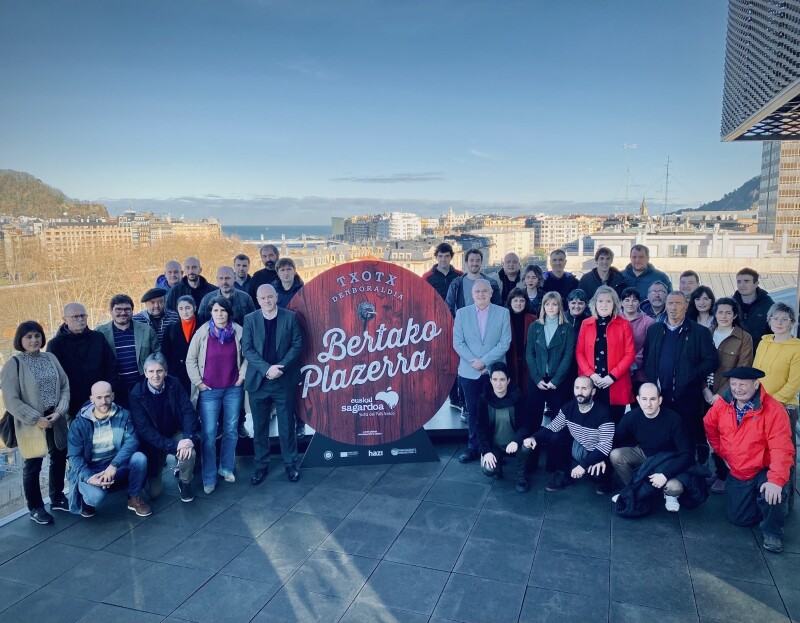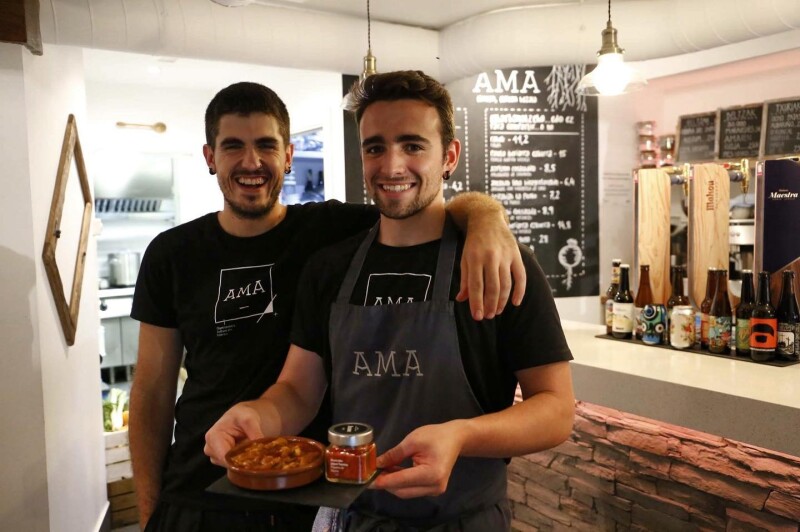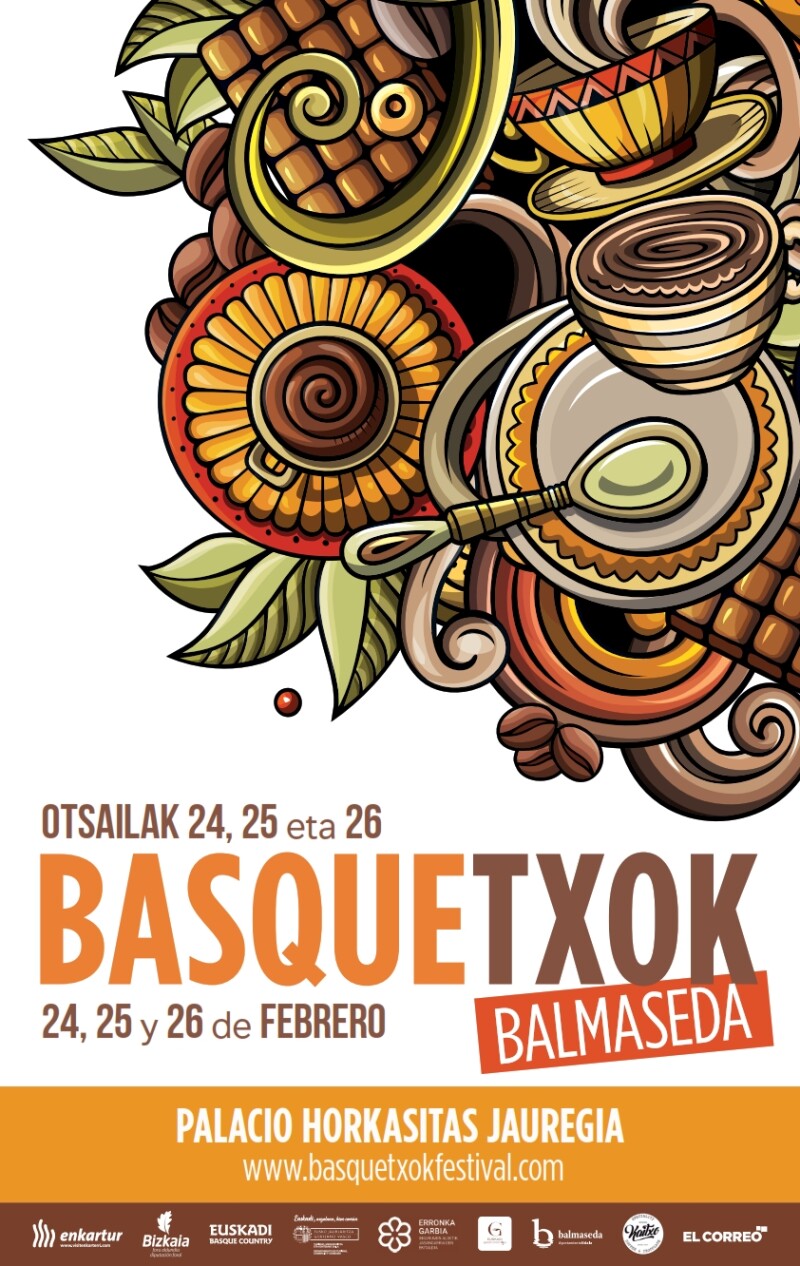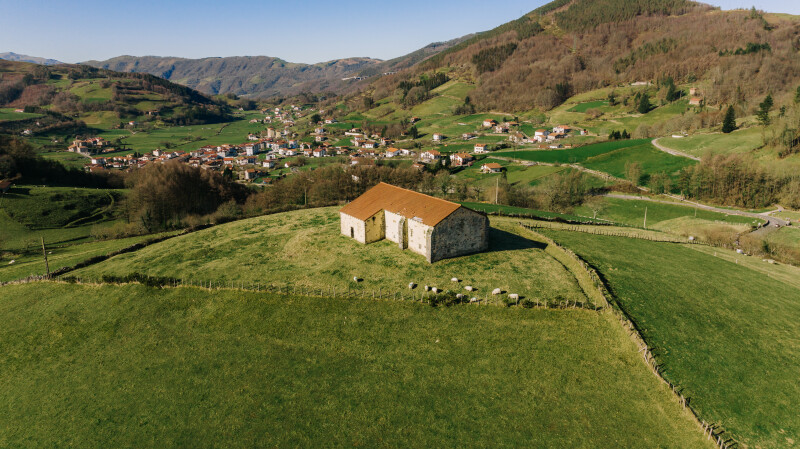Basque markets and fairs: more than a meeting point
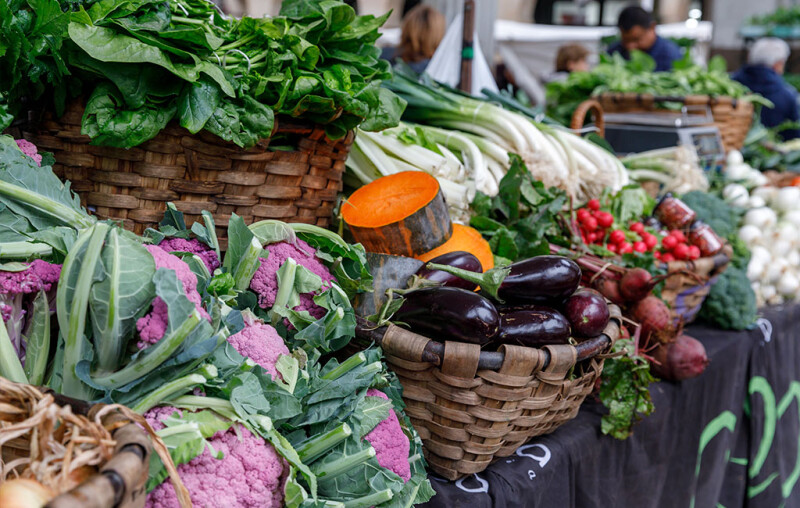
One of the greatest ways to get to know the Basque culture and its gastronomy is by observing the atmosphere breathed in a typical Basque market or traditional fair. Peasants, farmers, beekeepers, cabinet makers, viticulturists, pastry chefs, and artisans gather in these spaces — sometimes outdoors and sometimes indoors — creating a commercial setting, and occasionally even festive.
In the past, it was quite an event, since people who lived in mountains and fields went down to towns and large cities to sell their products and/or look for new suppliers. Additionally, at the end of autumn, they took the chance to sell the surplus of the year and celebrate the winter solstice.
Today, they continue maintaining the same essence, but with a modern twist. In some markets, we can find gastro bars next to food stalls and even classes where they arrange tastings and teach cooking courses.
The most popular markets
- Plaza de Abastos
It is one of the few markets that offer cooking classes, the most important in Álava. Besides being able to purchase vegetables and meats from Alava fields, you can eat or drink something in its gastro bars.
Likewise, they offer an hour and a half guided tours, where they present zero-kilometre products like alubia pinta, Gorbeia honey, or Añana salt. They also organise tastings with pairing and show-cookings. - Mercado de Gernika
It is a market held every Monday of the year. Buyers and sellers of agricultural products from all over Busturialdea meet in Gernika not only to buy and sell but also to socialize.
The hours are usually from 9:00 am to 1:00 pm, always depending on the sales that each station had. - Mercado de la Ribera
Inaugurated in 1929, it is one of the benchmarks of our specialised trade. Located in the Old Quarter of Bilbao, on the banks of the Nervión, it offers an extensive range of products.
Food stalls with seasonal goods, restaurants, gastro bars and even a cooking school coexist in the two-story building. - Mercado de Tolosa
This market has been held every Saturday for centuries, transforming the town into a great fair with its three open-air stages: the Tinglado, with more than 60 stalls with seasonal products; the Plaza Verdura, full of flowers, plants and aromatic herbs; and the Plaza Euskal Herria, a space where you can discover foreign products and textiles, make up the market every Saturday.
They offer one-hour guided tours every Saturday at 11:00 am by previous appointment.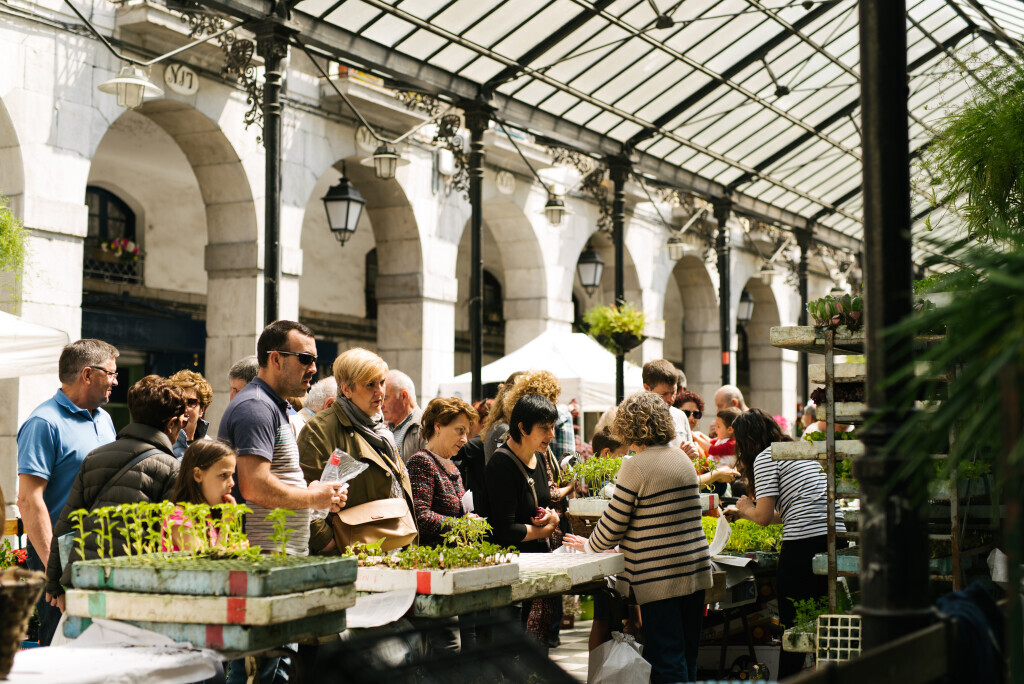
- Mercado de San Martín
Located in Donostia/San Sebastián, the current market opened in 2005, although its origins date back to 1884. It is a market where baserritarras, fishermen and butchers coexist with large technological and textile brands in the same space.
All of this is enlivened with gastro bars, guided tours, events and, among others, live performances to accompany the gastropotes on Thursdays (since the beginning of the pandemic, this type of event has not been held again). - Mercado de Ordizia
Every Wednesday its characteristic traditional market is held in Ordizia, whose history dates back to the Middle Ages. It has become a reference point because it is the place where the prices of agricultural goods from all over Euskal Herria are set weekly.
In addition to selling fresh and organic products, they also run guided tours, and wine and food tastings. - La Bretxa Market
It is located in the historic centre of Donostia/San Sebastián between the Kursaal Palace and the Town Hall, specifically located in the lower part of the shopping centre of the same name. It has butchers, delicatessens, fishmongers, as well as stalls selling vegetables, fruit, cheeses, conserves or flowers, among others. It stands out for being the only traditional market in operation today in the city.
The most important fairs
- Santo Tomás
One of the best-known fairs is Santo Tomás, which takes place in many towns and cities in the Basque Country, but the most popular are Bilbao and Donostia/San Sebastián. It takes place on December 21, with the winter solstice and is one of the most important dates on the Basque Country calendar.
One of the theories about its origin and the most widespread is that it arises at the time when the land was rented and the tenants or baserritarras took part of the harvest to the landowners as payment for the rent. Most of the owners lived in towns and cities, and the Baserritarras took advantage of the trip to bring more products and put them up for sale. From there emerged the traditional Santo Tomás fair.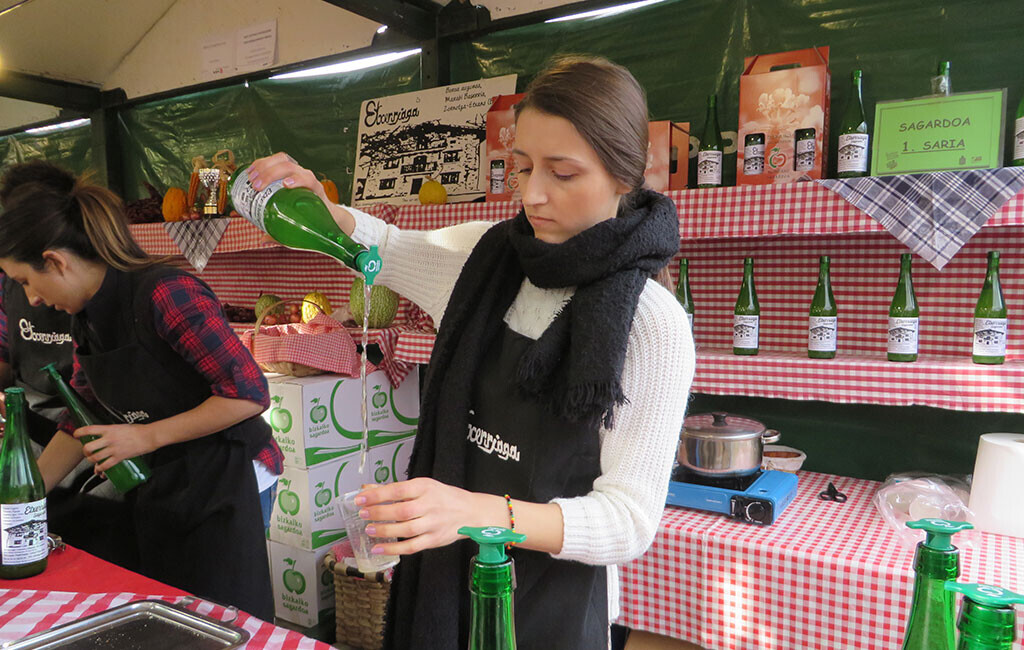
- First Monday Gernikés
On the first Monday of October, Gernika hosts a competition of the Euskadi Pyrenees breed that brings together more than 100 specimens. For two days, it becomes a showcase for the breed destined to produce an increasingly sought after meat in the Basque Country.
The program begins on Sunday with the selection of the best specimens, and on Monday those in charge designate the prizes for each category. In addition, you can taste the meat of this breed during the two days. - Last Monday of Gernika
It is the most remarkable fair in the entire Basque Country. Also known as Urriko (Urriko azken astelehena), it usually has more than 300 stalls throughout Gernika: vegetables, cheeses, txakoli, cider, sweets, conserves, Eusko Label products and all kinds of handcrafted items attract thousands of visitors.
Likewise, there are usually competitions, artisans making various products, exhibitions of agricultural machinery, cheese auctions, traditional food and drink for tasting (talos, txistorra, txakoli, cider ...) and bertsolaris.
In Gernika, this day is usually a holiday and as people there say: "lunes gernikes, kolperik ez!” (On Mondays gernikeses, you don't even hit).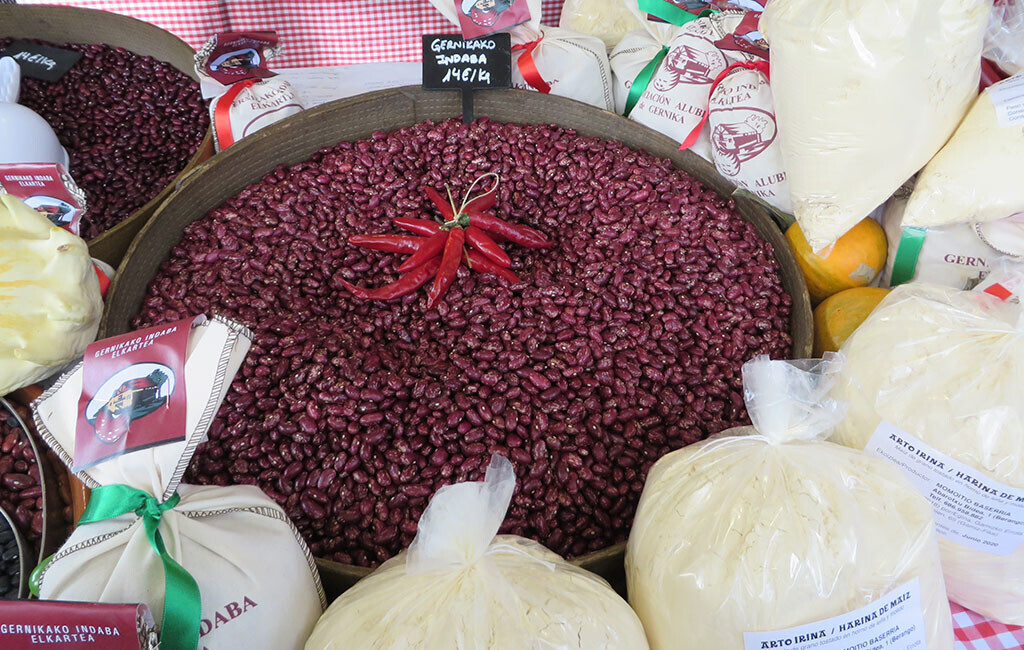
- Arrain Azoka
The most popular feria del pescado in the Basque Country is Bermeo, although there are more fish-related fairs such as Antxoa Eguna in Ondarroa or Berdel Eguna in Mutriku. It takes place in May and is the most important maritime fair in the Basque Country.
Organised to promote its marine heritage, today it is a meeting point where canneries, gastronomic societies, net makers and fishermen gather to show to the public what is behind each product. - Wine fair
In spring, Navaridas celebrates the Historic Wine Fair, where history and wine come together to promote and offer the best of its wines. Among other activities, they organise tastings, guided tours and children's activities.
Each edition presents a different theme to promote the wine and how to make this broth in other countries. Besides, contests and draws are held to liven up the fair.
Livestock, olive oil, agriculture... There are several themes at the fairs held in Euskadi. Come and visit our little gastronomic paradises and discover the authentic Basque atmosphere!
